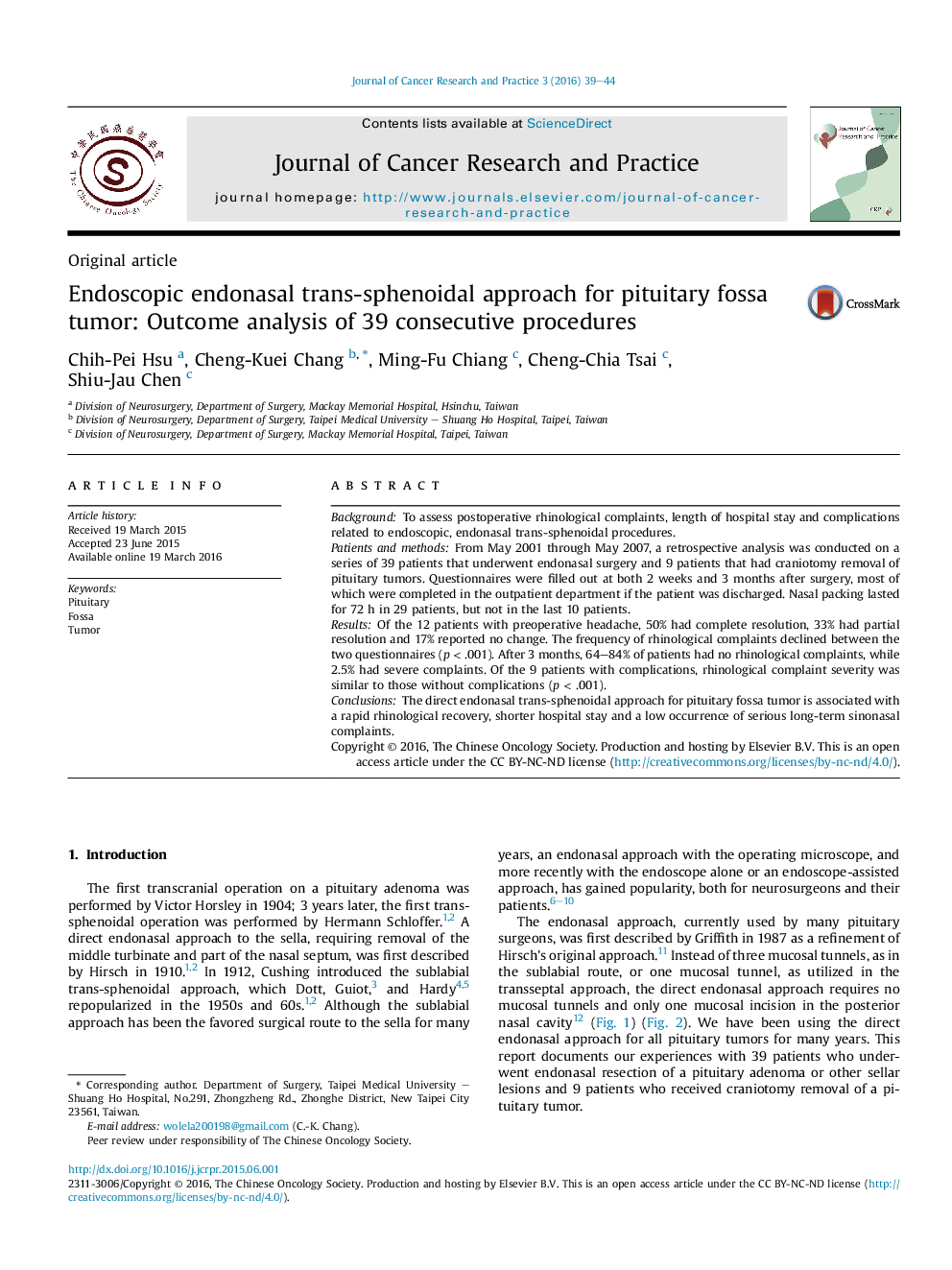| Article ID | Journal | Published Year | Pages | File Type |
|---|---|---|---|---|
| 3988770 | Journal of Cancer Research and Practice | 2016 | 6 Pages |
BackgroundTo assess postoperative rhinological complaints, length of hospital stay and complications related to endoscopic, endonasal trans-sphenoidal procedures.Patients and methodsFrom May 2001 through May 2007, a retrospective analysis was conducted on a series of 39 patients that underwent endonasal surgery and 9 patients that had craniotomy removal of pituitary tumors. Questionnaires were filled out at both 2 weeks and 3 months after surgery, most of which were completed in the outpatient department if the patient was discharged. Nasal packing lasted for 72 h in 29 patients, but not in the last 10 patients.ResultsOf the 12 patients with preoperative headache, 50% had complete resolution, 33% had partial resolution and 17% reported no change. The frequency of rhinological complaints declined between the two questionnaires (p < .001). After 3 months, 64–84% of patients had no rhinological complaints, while 2.5% had severe complaints. Of the 9 patients with complications, rhinological complaint severity was similar to those without complications (p < .001).ConclusionsThe direct endonasal trans-sphenoidal approach for pituitary fossa tumor is associated with a rapid rhinological recovery, shorter hospital stay and a low occurrence of serious long-term sinonasal complaints.
